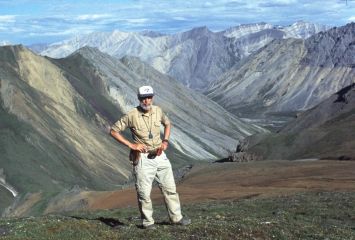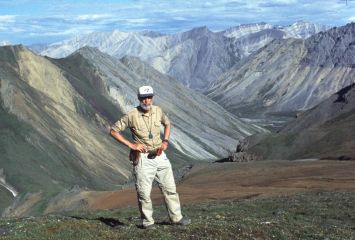Beyond Borders funding continues through 2021
- Tara Sharpe

In 2015, when President Jamie Cassels launched the Beyond Borders Fund, Nick Harrison was working in construction in his hometown of Salmon Arm, BC. He subsequently chose UVic for undergraduate study because he “knew UVic was really focused on trying to help humanity in a multitude of ways—not just for Canadians, not just for people in BC.”
Thanks to the financial support, Harrison now has invaluable skills and lifetime memories of a transformative internship last year on the Thai-Myanmar border as a UVic student.
The President’s Beyond Borders Fund (PBBF) was established to encourage and support a broader movement or “mobility” of UVic students within Canada and internationally.
Momentum behind student mobility
The year before he launched the fund, Cassels helped convene a national panel of Canadian university presidents focusing on experiential learning and student mobility. Cassels himself has reflected before on his time spent overseas as a young academic in India, about taking “a deep dive into another culture” to “examine my own understandings and presuppositions, and develop my field of study from an entirely different perspective.”
In his final year as President of UVic, Cassels looks forward to the ongoing impact of this fund for students interested in overseas experiences.
The fund will continue to support even more opportunities for our students and propel their growth as engaged and emerging global citizens.
– Jamie Cassels, President and Vice-Chancellor of UVic
Teaching along the Thai-Myanmar border
Harrison is one of four UVic students—all supported by the PBBF—who’ve interned at the Karenni Social Development Center (KSDC) in the Mae Hong Son Province of northern Thailand.
The interns teach the Advanced Community Management Training Course (ACMTC) at the KSDC, equipping students with the skills they need to work as leaders in their own communities.
Established in 2002, the KSDC is a community-based organization providing training programs and boarding for Karenni youth. As a result of ongoing persecution, many of the Karenni people now live as refugees and internally displaced people between the UN refugee camps in Thailand and the Karenni State in neighbouring Myanmar (formerly known as Burma).
The four UVic students, including Harrison (political science) who has just finished his final year at UVic, led ACMTC classes of 10 to 12 students four hours a day.
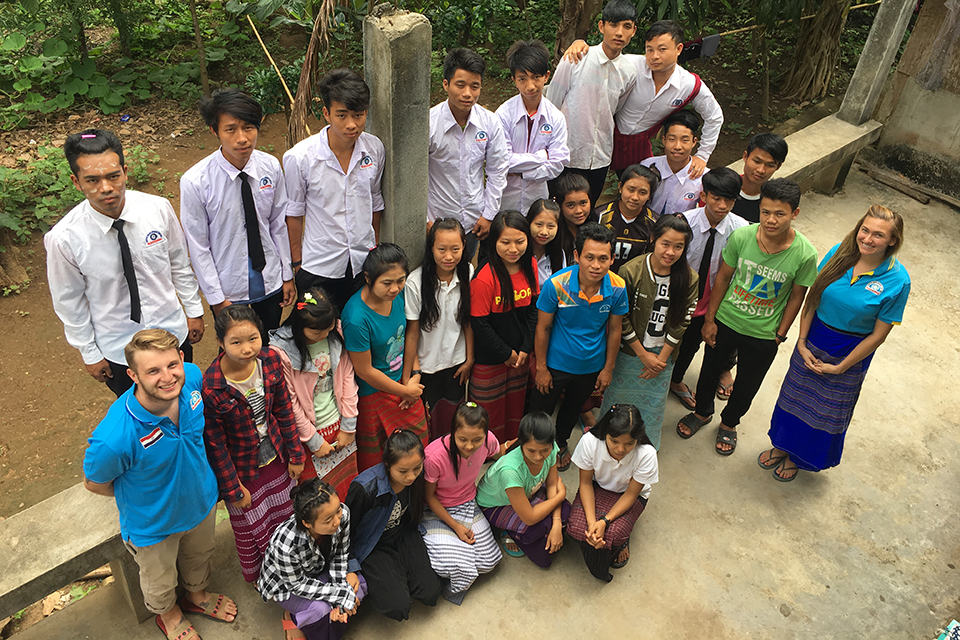
All four internships were coordinated by the Centre for Asia-Pacific Initiatives (CAPI) at UVic.
My experience profoundly altered my perspective on international development work and has helped me to better understand what it means to be a global citizen. I now plan to pursue a career in the international development field, focusing on refugee issues related to health, education and land rights.
– UVic alumnus Duncan Chalmers (anthropology), who returned to the KSDC as an employee after graduating from UVic
A transformative experience
Harrison was at the KSDC from May to November 2018. And what struck him the most during his internship was the cohesion amongst the youth.
“It was interesting to see how much community plays in the lives of the students and in Karenni culture. In class and during meal time, just seeing how much the students picked each other up and worked together really made me question and want to change my own notions of community back home—or at least to try to adapt to the sense of thinking less as an individual.”
Harrison describes a strikingly poignant similitude with Canadian students: “A lot of the students at the KSDC had experienced really traumatic events, with many having lost their parents in conflicts, but they were extremely resilient and for the most part really happy and excited to be at the school. And like any other 16- to 23-year-old that you'd meet in Canada, they just wanted to go to school, learn, have fun, be safe, be with their friends.
“Obviously, the cultural context of how they live their lives is different, but their core desires were very much the same.”
When asked for one word to describe his overall experience, Harrison immediately thinks of “immersive. It was very authentic. And it was remarkable how essential the notion of community was to the functionality of the school.”
Major milestones for CAPI
CAPI celebrated its 30th anniversary this past winter and also marked the 15th anniversary of its flagship internship program.
For three decades, CAPI initiatives have supported research projects from labour migration in Indonesia and coral reef recovery off Christmas Island to waste-pickers in Bangladesh, as well as a wide range of other activities such as coordinating internships, hosting Thai royalty and organizing international conferences.
Since 2003, CAPI has so far sent 185 Canadian students on life-changing placements with 53 different non-governmental organizations across 21 countries throughout the Asia-Pacific region (and a couple of placements in Africa), for a cumulative total of more than 92 years.
Taking a leap of faith
There are a million reasons why you maybe couldn't or shouldn't do something, but you are never going to grow as a human being or as an academic if you don't take a leap of faith.
– Social sciences undergrad Nick Harrison, addressing current UVic students
Before travelling overseas for his CAPI internship, Harrison knew he “really wanted to learn more in a classroom setting about why religion is so central to certain aspects of life. My studies at UVic piqued my interest in studying culture and society and religion and how those three things interact with each other.”
The internship “made me realize that I'm passionate about the Asia-Pacific region, to the extent that I want to pursue a career in it if I can. And I'd really like to do something related to advocacy for ethnic minorities, especially in Myanmar.”
More about the PBBF
Since 2015, the PBBF has supported students to immerse themselves in work, cultural and life experiences in China and Malaysia, Japan and the Philippines.
The funding is administered through UVic’s Co-operative Education Program and Career Services; Office of Global Engagement; and CAPI.
Application deadlines for PBBF funding will commence again this winter.
Find out more
Photos


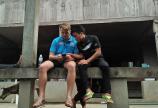
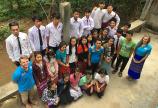
In this story
Keywords: international, study abroad, funding, Centre for Asia-Pacific Initiatives, co-op, global engagement
People: Jamie Cassels
Publication: The Ring


